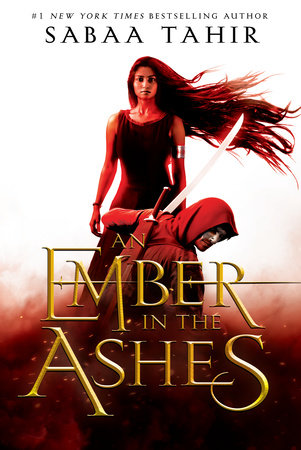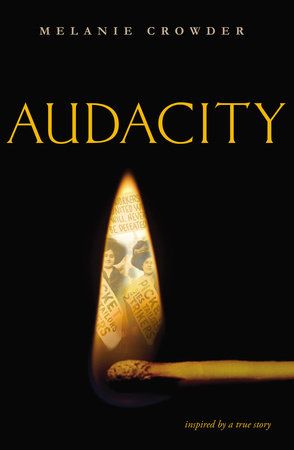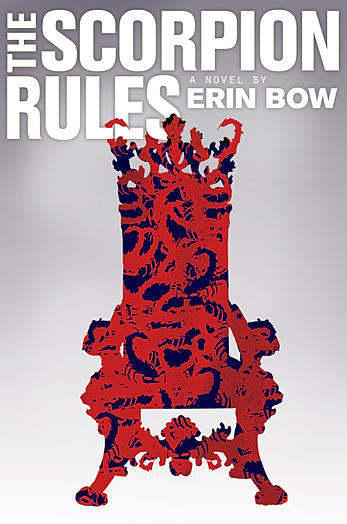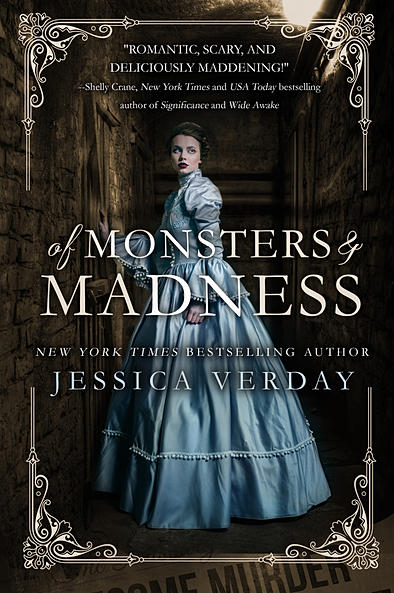
The Plot: It's been 500 years since the Martials defeated the Scholars. At various times Rebellion has been threatened, but the Martials always destroy it.
Laia, 17, is a Scholar. The once studious and education people are now banned from anything hinting at learning. Laia lives with her older brother, Darin, and her grandparents, until the night their home is raided by the Martials and their terrible agents, the silver-faced Masks. Her grandparents are killed, Darin is arrested, and Laia flees into the night.
She stumbles upon rebels who agree to help her free her brother, for a price. Go into the heart of the Martial training ground and spy on their Commandment. To do so, she'll have to pretend to be a slave. But for Darin, she'll do it.
Elias, twenty, is a Martial who has been trained to be a Mask since the age of six. Except he has a secret, kept hidden and deep. He hates the death and torture and violence of what he his, of what he is trained to do. He doesn't want his face to be forever silver. He dreams of escape, even though it will dishonor his Grandfather, but anyone caught running away is brutally executed. As each day goes by, he finds himself increasingly bound to the Martials and to his friends and wondering if the only escape is death.
The Good: Read this book. Now. The only down side of reading this book ASAP is that the sequel is out next summer, and you're going to have to wait that long to find out what happens next.
Read this book. It is a wonderfully complex setting, influenced by the Roman Empire and other ancient cultures. Sometimes a cultural setting such as the one in An Ember in the Ashes either downplays or ignores the consequences and reality of its setting. This book does not do that; it is a brutal, violent world and both Laia and Elias have been shaped and formed by that brutality. (For those who wonder about the violence on the page, I'll put it this way. A book can describe a death in a sentence, a paragraph, a chapter -- this book goes for the sentence or two. Does it lessen the horror of that death? No, it doesn't drag it on for pages and pages.)
Laia masquerades as a slave, but, no, that's wrong. While Laia is spying, she is actually a slave and all that implies. She is owned by the Commandment, who can do anything she wants to the slaves she owns. Laia is beaten and whipped; her name is taken from her. Other slaves have been scarred, branded, mutilated. The possibility of sexual assault and rape is real. So she has to survive both the change in status from free to slave but also figuring out how to be a spy for the rebellion.
Elias has been trained since the age of six to become a Mask, like his mother and grandfather before him. (His mother is the Commandment.) He has seen children whipped to death; he has been beaten; he has killed. He has followed orders. He has become one of the top soldiers. And he hates it. One of the things I love about An Ember in the Ashes is that while it's easy to hate the Martial class and all that Elias is and represents, the reader can't help but like Elias and root for him. To like his friends and understand his loyalties.
If you're wondering, because there is a girl and a boy and it's a young adult book, whether there is a romance -- well, yes and no. Again, complexity! While Elias may look at Laia and see a pretty girl, Laia looks at Elias and sees a dangerous soldier. Elias also is the type who sees Laia as a pretty girl who is a slave so is someone who for that reason shouldn't be touched (not a sentiment towards slaves shared by others.) There's a young man who is a rebel who Laia begins to have feelings for, and Elias has feelings towards another soldier, a young woman, and he's trying to deny them. So this is more a rectangle than anything else, and very realistically done given the different positions of power people have.
The Martial Empire is HORRIBLE. I wouldn't want to live there. But, again with reasons I like this -- when Laia learns more about the history of the Scholars, she realizes that her history and society is more complex than good/bad, vanquished/conquered. Elias looks around him and doesn't like how the Empire treats people, and he may be alone in this. It's hard to tell, because to confess such things would to betrayal, punishment, torture, death. His friends, though, are also likable, though part of this may be that we only see them in a context where they aren't arresting and killing and torturing, though we know that is what they have been trained to do. And truth be told while the ways of his training are harsh and I'm running out of words that mean "brutal," it's also realistic in terms of what is needed to create the perfect killing machine -- and that appears to be the sole aim of Elias's training and schooling.
The ending -- the ending!!! Don't worry, it's a great ending for a first book in the series in that it both works well as an ending for this book but there is also a great lead in to what will happen in the next book. I don't feel cheated or frustrated; I just feel MORE MORE MORE.
And the plot is so great that I don't want to say a word about it.
One more thing. The women in this story! Of course, there is Laia, who will do anything to save her brother but has been fairly sheltered up to this point. Poor, sometimes hungry, but always loved and protected by her family. Her strength is in her ability to survive, to love, to do what it takes.
Then there is Helene. Female soldiers are only accepted once in a generation, and so she is not just the sole female in her class, she's the sole female in her school. She has to be twice as good, ignore twice as much, as those around her. The friendship between Elias and Hel is one of equality and respect.
And Elias's mother, the Commandant. She was the female soldier of her generation. And as the head of the school that trains and forms soldiers, she is the one that every student fears. She is the one every slave fears. And with good reason: punishments, torture, and death all take place at her whim.
There is the Lioness, a legendary head of the Rebellion, brilliant but ruthless and willing to sacrifice anything for her cause.
And there are Laia's fellow slaves, Kitchen Girl and Cook, who have survived years in the Commandant's house, watching other slaves come and go. (And by "go" I mean die, whether at their own hand or the result of the Commandant's brutality.) There is more to each of them . . . .
One more thing. With this book there is always one more thing. I recognized the ancient Rome references in names and family structure; Tahir's guest post at the Perpetual Page-Turner goes into that research, as well as the research needed for everything from weaponry to the names of the other nations and groups in the book.
ARGH. I want to revisit this world, even though I was so worried about Laia that at times I could read no more than a few chapters at a time. My heart just couldn't take it.
OF COURSE this is a Favorite Book of 2015.
Amazon Affiliate. If you click from here to Amazon and buy something, I receive a percentage of the purchase price.
© Elizabeth Burns of A Chair, A Fireplace & A Tea Cozy












 The Plot: Caleb Hightower went to the California gold fields to earn his fortune; two years later, he's back, to marry the sweet girl he left behind.
The Plot: Caleb Hightower went to the California gold fields to earn his fortune; two years later, he's back, to marry the sweet girl he left behind.